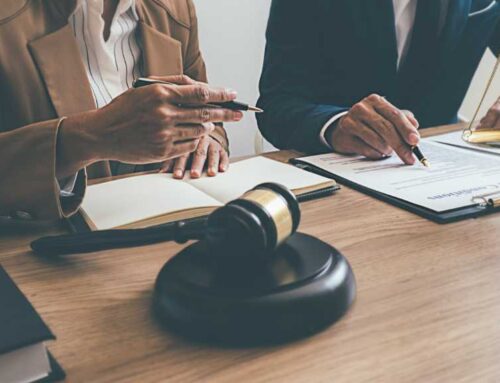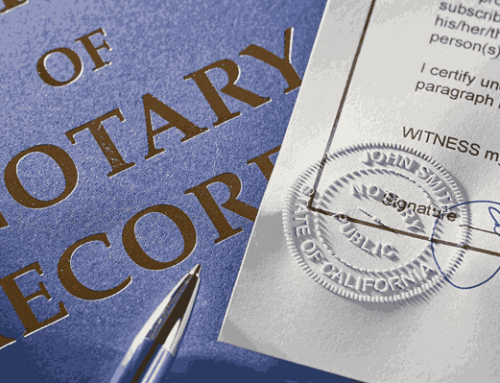“Your Honour I object” This is something every attorney has seen on TV. Navigating the legal system can be a daunting task for anyone, especially if you find yourself in a courtroom setting. 100 million legal actions a year this is before we get to all the cases heard in specialized federal courts. One essential aspect of legal proceedings is understanding and using objections effectively. Objections are formal expressions of disagreement with certain actions or statements made during a trial or deposition. They play a crucial role in maintaining the integrity of the legal process. In this blog, we will explore the different types of objections in court that you need to know.
Why is there a need to understand the objections before any legal proceedings?
Understanding objections before legal proceedings is crucial for several reasons, and it serves both the prosecution and the defense in a fair and just legal system. Here’s a description of why it’s important
Types of objections in court
In a court of law, objections are formal challenges made by attorneys during legal proceedings to prevent certain evidence, statements, or actions from being considered by the judge or jury. These objections are crucial for maintaining fairness and adherence to legal rules within the courtroom. There are several types of objections that attorneys can raise during a trial, each serving a specific purpose. Here are some common types of objections in court:
- Relevance Objections
Relevance objections are among the most common objections raised in court. They pertain to the admissibility of evidence or questions asked by attorneys. Essentially, if a piece of evidence or a question is not relevant to the case at hand, it can be objected to. The court’s role is to ensure that only relevant and material information is presented to the jury. In order to avoid confusion or prejudice.
- Hearsay Objections
Hearsay objections are used when a witness attempts to testify about a statement made by someone who is not testifying in court. Hearsay is generally not admissible in court because it lacks reliability and the opportunity for cross-examination. Exceptions to this rule include statements made by parties to the case or statements made for purposes other than proving the truth of the matter asserted.
- Leading Questions
Leading questions are questions that suggest a particular answer or lead the witness to respond in a specific way.
In cross-examination, they frequently use them to challenge a witness’s credibility or to extract specific information. However, during direct examination, leading questions are generally not allowed unless they fall under an exception, such as when refreshing a witness’s memory.
- Speculation Objections
Speculation objections occur when a witness is asked to speculate about something they do not have direct knowledge of or to make assumptions. Witnesses are typically required to testify based on their personal knowledge and facts, not opinions or guesses.
- Opinion Objections
Opinion objections are raised when a witness is asked to give their opinion on a matter that requires specialized knowledge or expertise. Lay witnesses are generally not allowed to give expert opinions unless they fall within their everyday experience.
- Compound Questions
Compound questions are questions that combine multiple inquiries into one. They can confuse witnesses and make it difficult for the opposing party to object to a specific part of the question. Legal Objections to Compound Questions aim to ensure clarity and fairness in testimony.
- Immaterial or Collateral Evidence
Objections can be raised when the opposing party introduces evidence that, while relevant, is considered immaterial or collateral to the case. This helps prevent the trial from becoming overly complex and time-consuming.
- Authentication Objections
Authentication objections pertain to the validity of evidence. To admit evidence, one must properly authenticate it to establish its origin. and relevance to the case. Without proper authentication, the court may deem evidence inadmissible.
- Best Evidence Rule
The Best Evidence Rule mandates presenting the original document or item of evidence to prove the content of a writing, recording, or photograph. Copies or secondary evidence are generally not admissible unless certain exceptions apply.

- Opinion Objections
Opinion objections are raised when a witness is asked to give their opinion on a matter that requires specialized knowledge or expertise. Lay witnesses are generally not allowed to give expert opinions unless they fall within their everyday experience.
- Compound Questions
Compound questions are questions that combine multiple inquiries into one. They can confuse witnesses and make it difficult for the opposing party to object to a specific part of the question. Legal Objections to Compound Questions aim to ensure clarity and fairness in testimony.
- Immaterial or Collateral Evidence
Objections can be raised when the opposing party introduces evidence that, while relevant, is considered immaterial or collateral to the case. This helps prevent the trial from becoming overly complex and time-consuming.
- Authentication Objections
Authentication objections pertain to the validity of evidence. To admit evidence, one must properly authenticate it to establish its origin. and relevance to the case. Without proper authentication, the court may deem evidence inadmissible.
- Best Evidence Rule
The Best Evidence Rule mandates presenting the original document or item of evidence to prove the content of a writing, recording, or photograph. Copies or secondary evidence are generally not admissible unless certain exceptions apply.
- Foundation Objections
Raising foundation legal objections involves attorneys questioning the basis for introducing evidence or testimony. This type of objection ensures foundational requirements are met before admitting evidence. To introduce a document, an attorney must establish its creation, creator, and relevance to the case.

- Character Evidence Objections
Character evidence relates to a person’s past behavior and is introduced to establish their propensity to act in a certain way. Character evidence is often inadmissible due to its potential to be prejudicial and result in unfair conclusions about a person’s guilt or innocence in many cases. However, there are exceptions, such as when a person’s character is directly at issue in the case.
- Privilege Objections
Privilege objections are raised to protect information or communication under a recognized legal privilege from disclosure. Common privileges include attorney-client privilege, doctor-patient privilege, and spousal privilege. These objections are essential for safeguarding confidential and sensitive information.
- Invoking the Fifth Amendment
In criminal cases, a witness can invoke the Fifth Amendment to avoid self-incrimination when questioned about matters that might lead to criminal charges against them. This objection is often associated with phrases like “I plead the Fifth” and is crucial in protecting an individual’s constitutional rights.
- Improper Characterization
Sometimes, an attorney may mischaracterize evidence or a witness’s testimony in a way that distorts the facts of the case. Legal Objections can be raised to correct these inaccuracies. They also ensure that the court and jury have a clear and accurate understanding of the evidence presented.
- Unfair Prejudice
Even when evidence is relevant, an objection can be made if it is likely to cause unfair prejudice to one party. This objection aims to prevent the jury from making decisions based on emotion rather than facts. The judge must weigh the probative value of the evidence against its potential for unfair prejudice.
- Lack of Personal Knowledge
Witnesses are generally only allowed to testify about facts or events they have personal knowledge of. An objection can be raised if a witness lacks personal knowledge and attempts to testify about an issue beyond their direct experiences.

- Cumulative Evidence
Legal Objections can also be raised when evidence is repetitive and cumulative. Introducing additional evidence on the same point after a sufficient presentation by one party may be objected to as redundant.
Conclusion
Legal objections in court ensure fair, efficient proceedings in line with rules of evidence and procedure. Lawyers must recognize when and how to raise legal objections effectively to protect their client’s rights and interests.
Understanding these objections can help individuals involved in legal matters make informed decisions when consulting with their attorneys or representing themselves in court.





